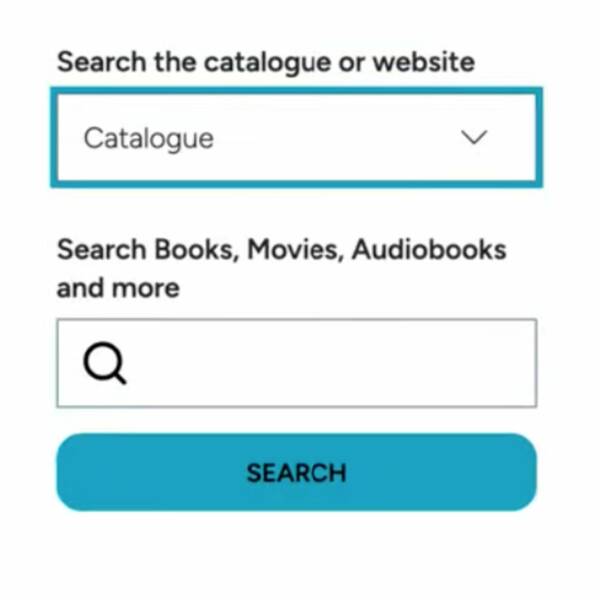Mugo partner since 2011
The 49th Shelf hosts about 100,000 books, and data about their contributors and publishers, as well as rich metadata like cover images, reviews, target audience, etc.
The 49th Shelf has several objectives. Primarily, the site attempts to list every in-print Canadian title; to facilitate it's discovery and to support consumer's ability to decide to buy a title (in print or ebook formats). As well, The 49th Shelf serves as a concrete use for ONIX bibliographic meta data (see http://editeur.org/) and thus aids the Canadian publishing supply chain to advance its use of good metadata.
Currently the site houses data for some 56,000 titles from 26,000 contributors and 100s of 1000s of supporting content pieces. The site is in constant development, rolling out new features and incrementally improving on a monthly basis.
The 49th Shelf aims to provide access to every Canadian book; to provide a platform for discovering, learning about, discussing and promoting, buying, and finding books. Currently the site hosts about 50,000 books, and information about their contributors and publishers, as well as lots of rich metadata like cover images, reviews, target audience and so on.
"We have worked closely with Mugo Web for more than three years now to conceptualize, build, operate, and expand 49th Shelf, a very ambitious web platform for Canadian books.
"From our earliest discussions it was clear that we would not have a typical client-vendor relationship with Mugo. They distinguished themselves right away not only as a team with considerable development expertise but also as partners in our project. They helped us develop our ideas for a unique web property for Canadian books, and to resolve some of the significant challenges we would face in importing and handling the large volumes of data that the project required.
"Mugo has consistently delivered beyond our already-high expectations for the project. More to the point, the Mugo team has always added considerable value in improving not only the back-end systems and server-side performance for the site but also in strengthening the user experience and usability for what has become a fairly complex site with hundreds of thousands of content objects and an expanding range of user groups.
"When we began this project, it was anything but clear that it could be successfully executed. Today, 49th Shelf presents the largest, public-facing collection of Canadian books ever assembled and traffic has scaled sharply over our just-concluded first full year of operations. The site has been widely praised by industry stakeholders and readers alike as an important new community hub and resource, and the development of the platform has resulted in some valuable new IP that has broader application in the promotion of books online and the enabling of reader communities in Canada and elsewhere.
"Mugo has played a key part in all of this and needless to say we recommend them highly as an expert team with a remarkably strong commitment to building great projects that work."
- Craig Riggs, Project Lead, 49th Shelf
Mugo Web has been the development team for The 49th Shelf since conception and we consider this one of our proudest moments.
In addition to the lead objectives, The 49th Shelf is building an online community around Canadian books and providing specialized tools to key audiences including librarians and movie producers.
Mugo has a long involvement in helping the Canadian book industry around ONIX data dating back to 2003 and the release of PExOD in conjunction with with Simon Fraser University's Canadian Centre for Studies in Publishing.
The 49th Shelf is a highly interactive community around Canadian books that helps connect readers with books and other readers, while having fun doing so! If you are a young reader, an occasional reader, a bookworm, a librarian, a teacher, a chef, or a playwright... if you read hardcovers while curled up by the fireplace or on your e-reader while on public transit... if you haven't read since you were in school or if you host a monthly book club... The 49th Shelf can help you get the most out of Canadian books.
The 49th Shelf is continuously updated with new books, featured books, book lists, and ongoing commentary through a blog. eBooks are also featured.
The book search enables books to be found by title, author, category, and publisher. Recommended reading lists are regularly added by the site editors and by the community.
On each book page is detailed book information, enhanced by excerpts, editorial reviews, community reviews, author biographies, and more. Purchase, share, and bookmark links are provided.
The web site is heavily social, enabling users to shape the site day by day. Books can be rated, tagged, reviewed, grouped into lists, and pinned on a map. The activity log widget shows every public user activity. There is also tight Facebook and Twitter integration.
Read Local is the 49th Shelf book map, which displays an interactive map of Canada. On the map are pins representing locations that have significance to various Canadian books. The pins are completely crowd-sourced; users can add, annotate, and categorize pins, which makes the map an evolving landscape of literary Canada. Users can share a link to the map, links to individual map points, and links to themes on Twitter and Facebook.
Periodically, The 49th Shelf hosts giveaways of books and supporting items, such as an e-reader.
Another fun element is the cover shuffle game, which gives players 6 minutes to name as many book titles as possible, based on their cover images. Anybody can play!
The 49th Shelf runs on the Enterprise Content Management System eZ Publish. eZ Publish's robust content model enables all book and supporting data to be stored and displayed. It also provides a flexible framework for working with the data in various ways, as well as connecting to external services for data exchange.
As eZ Publish experts, Mugo Web's web development for The 49th Shelf has included:

Partner since 2025
Bruce County Public Library launches new, streamlined website for better staff and patron usability.

Mugo partner since 2025
Waukegan Public Library launched a new website, increased engagement from patrons, and streamlined workflows among staff.

HubSpot is a well-established and popular CRM that allows you to manage customer relationships. Among their marketing services, they have native newsletter management, which can help to foster a great relationship with your subscribers. Beyond relying on the default options for newsletter management, you can use the HubSpot API to tailor the customer's experience in selecting their communication preferences.

Recently, one of our clients came to us looking to archive an older website that was no longer being updated. The site still needed to be accessible to the public for reference purposes. Taking it offline was not an option due to its historical value.
Running the site on a traditional hosting environment meant paying for a full web server, application runtime, monitoring, and associated maintenance — all of which were unnecessary for a site that no longer required server-side processing.
If you have a legacy site that doesn’t require dynamic content, migrating it to AWS S3 and CloudFront can be a highly cost-effective solution, all while ensuring it remains accessible, secure, and efficient.
Automating website management tasks like SSL certificate renewal is a great way to save time and mitigate human error, particularly if you manage multiple websites. Learn how to automate SSL certificate renewal using Let’s Encrypt and Oracle Cloud Infrastructure DNS API.
Building a website often comes down to choosing between “best–of-breed” services and cost-effective solutions that meet your business needs while being relatively easy to manage. Here we explore AWS services for automated text messaging and email, and compare them with other 3rd party options in the context of work done for GoLibrary.
Newly revised rules from the ADA regarding digital accessibility mean libraries in the United States have until April 26th, 2026, to ensure they are conforming to WCAG 2.1 AA standards. What does this entail, and how can a library system start making content more accessible?

Tabbing through a web page can be a frustrating experience. The user tabs to access a menu, but with the keyboard's next tap, they’ve moved on to another page element and have to retrace their steps to access the desired content.
For users who rely on keyboard navigation, this can be a major accessibility roadblock. And for other site visitors, it’s just poor UX.
Fortunately, you can implement a fairly straightforward function in JavaScript called a “focus trap” to ensure users don’t leave the page area they’re in without intending to do so.